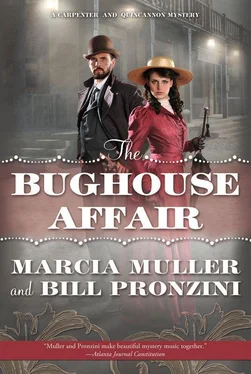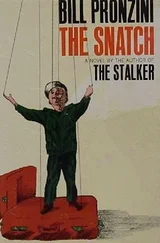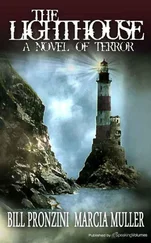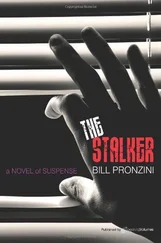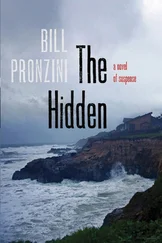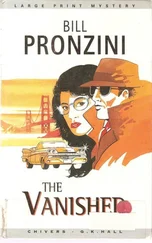Bill Pronzini - The Bughouse Affair
Здесь есть возможность читать онлайн «Bill Pronzini - The Bughouse Affair» весь текст электронной книги совершенно бесплатно (целиком полную версию без сокращений). В некоторых случаях можно слушать аудио, скачать через торрент в формате fb2 и присутствует краткое содержание. Жанр: Исторический детектив, на английском языке. Описание произведения, (предисловие) а так же отзывы посетителей доступны на портале библиотеки ЛибКат.
- Название:The Bughouse Affair
- Автор:
- Жанр:
- Год:неизвестен
- ISBN:нет данных
- Рейтинг книги:5 / 5. Голосов: 1
-
Избранное:Добавить в избранное
- Отзывы:
-
Ваша оценка:
- 100
- 1
- 2
- 3
- 4
- 5
The Bughouse Affair: краткое содержание, описание и аннотация
Предлагаем к чтению аннотацию, описание, краткое содержание или предисловие (зависит от того, что написал сам автор книги «The Bughouse Affair»). Если вы не нашли необходимую информацию о книге — напишите в комментариях, мы постараемся отыскать её.
The Bughouse Affair — читать онлайн бесплатно полную книгу (весь текст) целиком
Ниже представлен текст книги, разбитый по страницам. Система сохранения места последней прочитанной страницы, позволяет с удобством читать онлайн бесплатно книгу «The Bughouse Affair», без необходимости каждый раз заново искать на чём Вы остановились. Поставьте закладку, и сможете в любой момент перейти на страницу, на которой закончили чтение.
Интервал:
Закладка:
Sabina thought the scones and jam tasted just fine, but she didn’t say so. It would only have encouraged him. Not that he needed any encouragement to continue his lecture on the subject of tea. He seemed oblivious to her impatience.
“Few people,” he prattled on, “realize how many different varieties of tea there are from all over the globe. Assam, chamomile, Lapsang souchong, chai, jasmine-though the variety served in this establishment is rather poor. Oolong from the Far East, Darjeeling from India. Ali shan, Ti kuan yin, Formosa. Oh, yes, many, many different varieties. Perhaps one day I shall write a monograph on tea. Yes, I believe I will. Of course other studies have already been done, but I would adopt a much more scholarly approach-”
“Mr. Holmes,” Sabina said. Her voice was tart; she had had enough tea, literally and figuratively.
“Yes, dear lady?”
“Why did you ask me to meet you here? Surely not to regale me with your esoteric knowledge.”
“Nor merely to socialize, I confess. Did your interview with Mrs. Costain prove illuminating?”
What she had or hadn’t learned from the widow was no concern of his. “Interview isn’t the proper term. As I told you earlier, my purpose in visiting her was to offer my condolences.”
“You also intimated a professional reason.”
“Yes, as a matter of fact, there was another. The return of an item that had been stolen from her husband.”
“Ah. And what would that item be?”
“A silver money clip.”
“Not one of the items taken last evening, surely?”
“No. Andrew Costain was the victim of a pickpocket a few days ago.”
“Was he indeed? And how did you come into possession of the money clip, pray tell?”
“I would rather not say.”
Holmes shrugged. “As you wish.”
Sabina said, “Now I’ll ask you a question. Did you learn anything from your snoop inside her home?”
“Snoop? I must say I find your quaint American vulgarisms amusing, though that one is not quite applicable.”
“What would you call unlawful entry into a private residence?”
“A continuance of my investigations, as you heard me tell Mrs. Costain.”
“You’re not authorized to investigate, as you heard me tell you.”
“Not officially, perhaps,” Holmes admitted, “but a bloodhound cannot be easily deterred when he has the scent. Particularly not when he has sighted his quarry.”
“And just what does that mean?”
His eyes gleamed-rather madly, it seemed to Sabina. “Le cas est resolu,” he said.
“I beg your pardon?”
“The case is solved.”
“Oh, it is?”
“Indubitably. I have deduced how Andrew Costain came to be murdered in his locked study, and how his assailant appeared to vanish from the premises after the crime was committed.”
“How clever of you. Explain, please.”
“You’ll pardon me, but not just yet. I prefer to make my discoveries known in the presence of the various concerned parties, including you and Mr. Quincannon, and I require time to properly prepare. I confess to a propensity, you see, for the dramatic presentation. If I had not chosen to become a detective, I might well have sought a career on the stage.”
Nonsense, Sabina thought. The man was a daft fraud, after all; the real, and now deceased, Sherlock Holmes would have been all too eager to trumpet his triumphs. Or would he? John was usually eager to trumpet his triumphs, but he, too, had been known to keep his deductions to himself until he was ready to unveil them in front of an audience.
She said, “When and where do you intend to make this presentation of yours?”
“Soon. As early as tomorrow morning, if arrangements can be made.”
Lord, he was infuriating! No wonder John disliked him so intensely, though it was John’s fault the fellow was involved. “Surely you understand that you have no right to withhold information in a robbery and homicide case.”
“From you and your partner? As you took pains to point out, I am no longer even marginally in your employ.”
“I meant from all concerned individuals. A man’s life has been cruelly snuffed out and his widow left grieving. Violent death is not a matter to be taken lightly.”
“I do not take it lightly,” he said. “On the other hand, I do not regard death in quite as serious a light as you Americans. We British prefer to face its inevitability in a matter-of-fact fashion, without undue emotion, and I might say less euphemism and pretense as well.”
Sabina said with temper, “There is no such thing as a national approach to either death or bereavement.”
“If that is your belief, I shan’t argue. However, there are many differences between our nations. We British…”
And he was off again on another monologue. Solidarity of British society despite problems with the Cornish, the Welsh, the Irish, the Scots, and the rebellious nature of the Empire’s colonies; traditions passed down over multiple generations; the lessons taught and learned through the long and glorious history of the British Isles.
Sabina thought she might shriek if he didn’t shut up. She forestalled the necessity by deliberately rattling her cup and saucer loudly enough to turn the head of the shop’s elderly proprietress.
Holmes blinked at her.
“You seem to have invited me here in order to pontificate and gloat,” she said. “I have better things to do with my time than to be subjected to either.”
“You misunderstand me, dear lady. My one and only purpose was to inform you that I have solved the case, thus saving you and your estimable partner the need to continue your investigations.”
“I’ll believe that when you’ve proven it to me.”
“And so I will-tomorrow.”
“When and where tomorrow?”
“The time and place have yet to be determined.”
Sabina had had enough of his sly, arrogant manner. She pushed her chair back and stood. “Thank you for the tea-and good-bye.”
The Englishman also stood. “The pleasure was all mine,” he said, and offered up another of his bows. “I shall let you know as soon as the necessary arrangements have been made. I guarantee neither you nor Mr. Quincannon will be disappointed.”
Sabina knew what John would have said to that, but she was too much a lady to ever use “Bah!” as an exit line. She took her leave in dignified, if bristling, silence.
23
QUINCANNON
The district known as the Uptown Tenderloin was a pocket of sin more genteel and circumspect than the Barbary Coast, catering to the more playful among the city’s respectable citizenry. It was located on the streets-Turk, Eddy, Ellis, O’Farrell-that slanted diagonally off Market. Some of San Francisco’s better restaurants, saloons, variety-show theaters, and the Tivoli Opera House flourished here at the western end of the Cocktail Route that nightly drew the silk-hatted gentry.
Smartly dressed young women paraded along Market during the evening hours, not a few of them wearing violets pinned to their jackets and bright-colored feather boas around their necks that announced them to those in the know as uptown sporting ladies. Men of all ages lounged in front of cigar stores and saloons, engaged in the pastime that Quincannon himself had followed on occasion, known as “stacking the mash”: ogling and flirting with parading ladies of both easy and well-guarded virtue.
Parlor houses also flourished here, so openly that the city’s reform element had begun to mount a serious cleanup campaign. The most notorious of these houses was the one operated by Miss Bessie Hall, the “Queen of O’Farrell Street,” all of whose girls were said to be blond and possessed of rare talents in the practice of their trade. Lettie Carew and her Fiddle Dee Dee were among the second-rank of Bessie’s rivals, specializing in nymphets of different cultures and hues.
Читать дальшеИнтервал:
Закладка:
Похожие книги на «The Bughouse Affair»
Представляем Вашему вниманию похожие книги на «The Bughouse Affair» списком для выбора. Мы отобрали схожую по названию и смыслу литературу в надежде предоставить читателям больше вариантов отыскать новые, интересные, ещё непрочитанные произведения.
Обсуждение, отзывы о книге «The Bughouse Affair» и просто собственные мнения читателей. Оставьте ваши комментарии, напишите, что Вы думаете о произведении, его смысле или главных героях. Укажите что конкретно понравилось, а что нет, и почему Вы так считаете.
